#no more obfuscation and dissembling
Explore tagged Tumblr posts
Text










#tv: hannibal#hannibaledit#hannigram#hannigramedit#will graham#hannibal lecter#great scene#no more obfuscation and dissembling#just perfectly chosen bluntness#“appetite”#“tolerate”#as if hannibal lecter would ever consent to being merely tolerated#these are will graham's precision strikes#folie à deux#things i made
81 notes
·
View notes
Note
A couple questions for you! There’s been so many backstories and childhoods for Riddler, which ones are your favorite?
Do you abide by Eddie cheating at puzzles as a child, or being envied and abused for his intelligence and high test scores?
Where do you like to see him work before he was a criminal? I know there’s been a bunch, like the carnival, the GCPD, Wayne Enterprises, a software designer for Mockridge, etc…
— Zee (@riddle-us-this)
I believe that an important aspect of Edwards character is how much he craves attention and validation, and more often than not issues with such things emerge in childhood (at least for me 🙂↕️) so while i prefer to think that Eddie was always naturally smart and in honors and gifted programs and what not- i have a feeling that if he realized that he would not succeed at something that he has never been opposed to 'bending the rules'. One line of his from Arkham Knight i really like is where he says: "I dissemble! I artfully obfuscate! BUT I DO NOT CHEAT" (i also acknowledge that in this same continuity is where the cheating as a kid comes from anyways but erm whatever)
So in simpler words, I see him being the highest in his classes and one of, if not the smartest during his educational years and receiving nothing but abuse and isolation from his peers and others alike through it all. That no matter how much he tried and how successful he was, no one cared enough to acknowledge him.
As for your second question, i usually see his as either an employee at Wayne Enterprises or at the GCPD, i think both offer something unique for his character. And as much as i also love BTAS riddler and how they showed his backstory with Mockridge, keeping that same sort of rejection and abandonment the second he wanted recognition; I find that him working in the GCPD (specifically like how he did in the Gotham show) is usually how i imagine him. Despite how i draw and see him being mostly inspired by Zero Year Riddler, I think the GCPD offers him more advantages character wise, it also explains in a way why he prefers dealing with Batman rather than cops, and i like the idea of him being a total prick whenever he's in custody because he knows most of these people and how corrupt they are. I am also biased because the GCPD route gives him another connection to Two-Face and his quest to destroy corruption in courts and all that. It also can help his later reformation as a private detective, if i ever do anything with that.
#thank you for the questions i love talking my heart out#answering asks#woah#the riddler#zero year riddler#gotham riddler#btas riddler#arkhamverse riddler#batman au#weirdez
10 notes
·
View notes
Text
‘That’ Dusk / Imogen Conversation
Listen, I am already melting down about all the Imogen / Laudna / Dusk character dynamics we got through this episode, but I just wanted to point out one more heartbreaking misunderstanding which comes in the middle of ‘that’ conversation.
Dusk asks if Imogen and Laudna are ‘romantically entangled’. Imogen’s response is... at best an obfuscation, at worst a straight lie. Because sure, she may be speaking the literal truth. The relationship between her and Laudna is not explicitly romantic, but that is far from being the whole truth. It’s complicated. Imogen doesn’t want to talk about the complicated nature of that relationship with this person who she’s just barely met and is wildly jealous of, so she dodges the question. With a marked lack of grace, it has to be said.
But it’s immediately followed by another misunderstanding.
Dusk is relieved. “Good,” they say. “Because I was, y’know, kinda getting some vibes and everything, and I kinda..., you know...”
And what she means and what Imogen hears are totally different.
Here’s what she means: “Good! Because I was kinda getting some vibes between the two of you, and I didn’t want to walk into the middle of something.”
And what Imogen hears?: “Good! Because I was kinda getting some vibes between her and me and wanted to follow them up guilt-free.”
When Imogen responds, “I could see it,” she means between Dusk and Laudna. But Dusk hears that as, “I could see why someone might think that about Laudna and I.”
Dusk is being straightforward and honest, and isn’t trying to read between the lines at all. Imogen on the other hand... is setting a net for her own feet, and it’s only a matter of time before she falls into it.
Time for our dissembling purple-haired sorceror to start getting honest for a change...
#critical role#critical role spoilers#critical role campaign 3#critical role s03e25#laudna#imogen temult#dusk#imodna#southerngothic#@bagleocity is right: imogen is down bad#she just needs to admit it!#look at sam's face when imogen finally gets that 'no' out#big mood
438 notes
·
View notes
Text
oh yes thank you thank you
I want more of Aziraphale, forced into a corner, no longer having the option to obfuscate and dissemble. When push comes to shove HE WILL FIGHT YOU. And he will win.
i swear if this happens in s3 I will lose my shit because Michael Sheen will go fucking feral with it
Supreme Archangel Aziraphale will stand tall, his eyes hard like steel, his voice will growl, the air will go thick and prickly, and boom! You’re smitten. I want it to be for Crowley. In fact, it will happen in the presence if Crowley. And then he will turn around and kiss the living daylights out of said Crowley.
crowley, as well as all the viewers, immediately pass out
exit with Neil Gaiman’s evil cackle fading into the darkness
Ok sorry but why is no one talking about Aziraphale’s most bad ass scene in the entire fucking show? Like yes I know it was hot when he corrected his name when Furfur was butchering it and yes it’s amazing, but how are we all sleeping on the utter majesty of
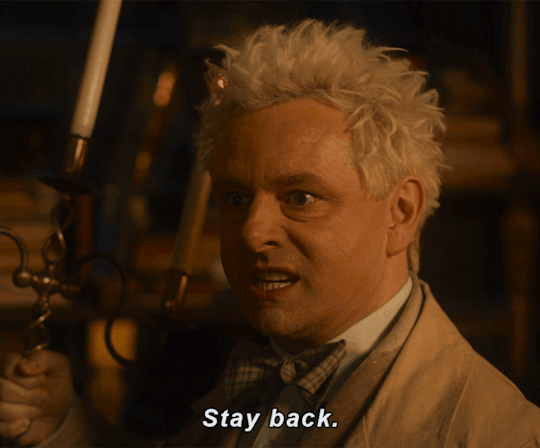
My brothers and sister in Christ. The growl. The stance. Did he swap again with Crowley? No, that is pure, raw bastard angel, serving up fresh cunt. If he had been holding his flaming sword in this scene, I would be posting this from the grave. Crowley would have instantly jizzed his pants and fell to the floor useless if he had seen this. This bitch ain’t soft, he’s rock hard and ready to FUCK. YOU. UP.
#Aziraphale may play the helpless maiden#he may prefer being soft#but goddamn#don’t step on those he protects#he will murder you until dead#and we will all feel things while he does#Thank you michael sheen#good omens#good omens 2#michael sheen#michael fucking sheen
7K notes
·
View notes
Text
Your One True Nemesis
Chapter 9: also on AO3 Masterlist Here Arkham!Riddler x Female!Reader, word count: 2k he's my little meow meow and i really indulged that this week 💚🔧 request info • prompt list • send me a request • kofi • masterlist minors DNI!! 🔞 cw: angst, hurt and comfort, minor injuries and blood
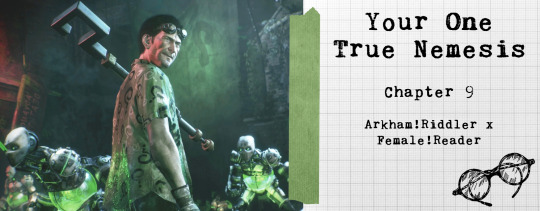
Eddie had been gone all day, which wasn’t like him. Not just because he rarely actually left his lair, but on the rare occasion he did, he was usually quick to return to the safety it provided. In there, he knew who he was. The smartest in the room, the one in control. Out in the real world the illusion could be shattered, so he spent as little time in it as possible. So the fact that he had been out since early in the morning until now, well past the time he usually preferred to eat his last meal, was concerning to say the least.
You paced in the living area, unable to settle yourself, your worries fuelling adrenaline, adrenaline fuelling panic, and panic fuelling the worry. Just as you began to question whether it was wise to involve the GCPD, Eddie thankfully appeared in the arch of the tunnel. Almost as though even in whatever state he was in, he could sense you were about to do something stupid and had to put a stop to it.
As you stared him down, prepared to interrogate him or berate him for having you so worried, you felt all anger fade away, replaced only by more concern. His body was badly bruised, and all of the skin that was exposed was covered in scrapes and cuts, dried blood tainting him with a deep, rusty, red sheen.
“Jesus, Eddie! What happened to you?”
“In my weakened state, and perhaps influenced by my own sense of vulnerability at this moment, I will opt to provide you, generously, with three guesses.”
You collected the first aid kit from cabinet below the sink, one of the many that were scattered around in each room, and rushed to him, pulling his arm gently and sitting him down in the armchair. Kneeling in front of him you began taking out the bandages and antiseptic wipes.
“The answer depends on what you were doing… which you didn’t bother to tell me earlier.”
“You’re going to nag me? Now?”
Your silence was enough, and filling it, he finally answered.
“I was trading some handmade… equipment, in exchange for some more volatile materials.”
“You’ve come back empty handed.”
“Ambush.”
“Oh, Eddie…”
“These things are inevitable, I’m afraid. Almost a statistical certainty in this line of work, when you’re alone.”
Both of you winced, Eddie at the pain of the antiseptic against the larger cut on his arm, and you at the notion that he still felt alone.
“And yet, you do it anyway.”
“Of course. There is no other option. It’s just unfortunate that I’m cursed with knowledge and genius. You literally cannot imagine what it’s like to be so intellectually removed from the rest of the human race, especially when everyone around you is confident going about their daily lives, unaware of the likelihood of danger and misfortune.”
“What a horrible way to live. So who was it?”
“No one important. Which is the worst of it. A gang of mediocre thugs. Outnumbered, overpowered. I think they were part of Dent’s menagerie.”
“You shouldn’t have gone alone, Edward.”
He pulled his arm back from you, and you looked up, met with a scowl.
“And I suppose you would have made a huge difference, had you been there?”
“I just mean… you can’t be your best if you’re not as your best, and returning to work bruised and beaten-”
“I am not beaten! I don’t need anyone’s assistance with something as simple as a trade. They broke a bond of trust, they cheated!”
“The equipment you were giving them in exchange… was it the duds you were going to scrap for parts? Isn’t that cheating?”
“How dare you… I dissemble! I artfully obfuscate! But I do. Not. Cheat. It hardly matters anyway, because now neither of us are getting what we wanted. But give me time. I will stand triumphant over their bloodied corpses. I will rise above the pitiful excuses for criminals in this city, watch them beaten and bruised for a change. And as the dim light fades for good in their tiny dullard minds, they will know I bested them. Everyone will.”
While he was ranting, you had managed to gain control over one of his arms again, dabbing softly with a wet cloth to clear the blood away. Looking down at you, he pulled it back once more.
“So you will forgive me if I believe that I don’t need someone to fuss over me, or care for me.”
“That might be exactly what you need…”
“You think so? You think that’s what I need? You think someone to tend to my minor wounds and clean up after me is going to solve my problems?”
“I’m going to give you the benefit of the doubt, Edward, and assume this attitude is coming from a place of pain. So give me your arm and let me finish-”
“You think this is pain?”
He scoffed, leaning over, back bent low so that his face was almost even to yours, noses almost touching. His warm breath cutting through the cold air as it hit your cheeks with his low whispers.
“Did you know I had a photographic memory? I can summon that idiot detective’s sneering features at will. The cruel, mocking faces of my peers at every age. The unloving, grimacing snarls of my parents. That is, when they don’t burst unbidden into my brain, torturing me without warning, never knowing when to take their leave.
Taken aback by his openness, you stayed still, eyes darting from his intense gaze to the floor.
“No, I didn’t know that.”
“I have perfect recall too. Did that one come up in your studies of me? I doubt it. Do you know, I can remember… every time someone has hurt me. Sometimes I wake up to the feeling of their hands around my neck, their fists smashing into me, their words cutting at my skin, my ego, fragile as it was… and I think… how dare they brutalise me? Make me think I was anything less than their intellectual superior? Their better? Because that’s what I am, you know!”
While he talked, completely absorbed in his own rant, you managed to keep tending to the cuts and scrapes that covered his arms. None of them so deep that they couldn’t be covered with a couple of bandaids.
“I mean, me. Me! Edward Nigma! The Riddler! The world’s greatest… everything! They’re just thugs. Bullying emblems of the arrogant notion that might makes right. And when I have my revenge, on each of them. Proving them all wrong. I will end them, and the unjust things they all stand for.”
He hissed again, sucking the air in past his teeth as he scowled at you once more. From your peripheral vision you could see him watching you, eyebrows down and furrowed, eyes focused intently on your hands as they inspected his chest next, cleaning it off as you spoke.
“You’re right, you know.”
“What? I am? I mean, of course I am. But, about what specifically?”
“Everything. The world is cruel, sometimes. And sometimes, some of us experience more of the cruelty than others. We just… attract the kind of people who like to offer cruelty in response.”
“You think I’m one of those people.”
“I… think you were.”
Tilting your head to look at him, you caught his eyes for only a brief second before he looked away, painfully aware of how honest he had been, how exposed he was, sitting before you, battered and hurt, emotionally and physically. As you continued to patch him up, you offered up your own vulnerability, taking a deep breath before you spoke again.
“I uh… I think one of the main reasons I wanted to work for you was that I admired you. The way you work, the way you thought, the things you valued, the methods you used. I was impressed. So impressed. And I knew some of your history. Your parents. The Arkham files that you released, your own were in there. I wondered sometimes why you left them there. It couldn’t have been a mistake, because you don’t make mistakes.”
Looking to him, you smiled, and you could see one cross his lips so briefly, ghosting over his face before he turned further from you, hiding the sweet, silent joy.
“You wanted someone to know, I suppose. Even subconsciously. And I know. I aspire to be like you, Eddie. To rise above my past. We’re not so different, really. You’re… inspirational.”
You realised that your attentive work had finished. Now, you were absent-mindedly letting your fingers rest on his chest, his breaths lifting your palm up and down, thumb stroking back and forth. You stood up and pulled away quickly with a soft gasp, but you didn’t get far, as Eddie took hold of your wrist, a firm grasp that softened as he realised you were staying. For what felt like hours, but simultaneously so swift, you looked into each other’s eyes. As he looked away, letting go of your wrist, he muttered under his breath.
“Thank you.”
“Y… you’re welcome.”
Standing awkwardly, you waited for more. It felt like something more should happen, or was going to happen. Although, you were actively convincing yourself that it was wishful thinking. Which was proved correct as Eddie stood up, eyes averted, but scowl returned to rest on his suddenly not-so-sweet face.
“You shouldn’t have done that.”
“Oh, it’s no problem, I just-”
“No, I’m not… you don’t need to feel sorry for me. I don’t need sympathy, I don’t need a kind ear. I don’t need you to clean my wounds. I did all of that before without you, I’ll continue to do it once you’ve gone.”
“I was just trying to help, Eddie.”
“Well, help by doing what I’ve asked you to do. Don’t interfere where you’re not welcome. There’s little to no reason for us to know anything more about our private lives and history than our names and valuable skillsets. Remember that.”
In the direction of the workshop, evidently deciding to forego sleep or food or even a shower, Eddie left without any further words, not a glance in your direction. As he made his way through the tunnel, he felt oddly satisfied. Surely not because of your affections, the way you had opened up to him, the way you had cared for his physical wounds, had listened to his emotional ones. He reasoned that the satisfaction came from putting you in your place. You were nothing more to him than an assistant. He had to remember that, and so did you.
If he didn’t keep it at the front of his mind, he’d run the risk of telling you too much. Letting you too close. A desperate error on his behalf. A complete mistake. And he didn’t make mistakes.
And as Eddie self-soothed, congratulating himself for all the wrong reasons, the echo chamber of his egotistical mind convincing him that he was, as always, completely correct, you made your way to your room in silent disappointment. It seemed ever more obvious, each passing day, that you were never going to amount to more than a distraction or a meagre assistant to Edward. Which was fine before. That was all you really wanted. But now that you had spent time with him, the more you got to know him, the deeper your feelings for him reached. You wanted more, you were getting greedy. You knew that would be your downfall though. So you resolved to take a step back.
Maybe giving Eddie some space, and giving yourself a reprieve from your pathetically all-consuming crush, you two would find the right path for your relationship. And whatever that path ended up being, you would accept it gratefully.
“Get back to the original mindset. You’re just glad to be here with him. You don’t think you’re his equal. Be… subservient, I guess?”
With a deep sigh, you picked up a bag of chips and headed for your bedroom for a sad and lonely little dinner.
#finnie writes#arkham riddler#arkham edward nigma#riddler x reader#arkhamverse riddler#the riddler#arkhamverse#riddler#the riddler imagine#riddler smut#the riddler fanfic#riddler fanfic#riddler x you#edward nigma x reader#edward nigma#arkham!riddler#the riddler fanfiction#arkham!verse#finnie yotn
76 notes
·
View notes
Text
several of my current online friends participate in that post-ironic "we need to bring back bullying" discourse & i can't parse tone at the best of times so who knows if they Really Mean it or if they're just parroting the memefied echolalia du jour to express disdain when someone posts cringe without considering its implications. however. it does provoke a certain amount of cognitive dissonance & i begin to wonder if they'd deign to be friends with me in real life, where i have a very "clockable" developmental disability, as B put it. i've made it my life's work to pull a garak & develop an affable, pleasant, disarming persona, because "being absolutely inoffensive & friendly, such that even the bullies who pick on all your friends don't find fault with you, the human equivalent of like, buttered toast, nobody's favorite food, but easy enough to digest & not unpalatable" was the only strategy at my disposal. it's helpful to follow people's alts & see who is talking shit about whom, which strains of discourse irk which people, which rhetorical quirks. make a mental map like the one i made in high school of everyone's social relationships because i am still a dumbass who finds out person A acts perfectly pleasant toward person B in public but secretly can't stand them & am like 😮 about it. like i talk a big game about garak's elaborate web of deception or whatever but i'm actually not very skilled at it & am always taken aback when i discover somebody said something they didn't mean. this is like 50% autism 50% my parents, comma, the bluntest people alive, who have never once dissembled or obfuscated even for the sake of propriety lmao. i keep forgetting other people do this & it freaks me out so i just decide to take everything everyone says at face value & if it bites me in the ass later, i'll know to be more cautious with them in future. this is a long rambling post to say tl;dr it freaks me out when people are secretly mean & makes me paranoid that other people are being secretly mean & i'm just not privy to it (this happens constantly in real life; i missed ALL the gossip in russian school & got awarded the "kindest person" superlative at the end of the summer lmfaooo). so! what i do not know does not concern me :)
14 notes
·
View notes
Quote
The assault upon objectivity began, for me, with climate change, On one side of the question of whether humans were contributing to global warming sat almost all of the world’s relevant scientists. On the other were a few attention-seeking journalists and the former chancellor, Nigel Lawson. Nevertheless, any TV or radio debate on the issue in recent years has afforded equal time and weight to both ‘sides’. It would, of course, be wrong to completely outlaw crackpots and quacks, but we seem to have reached a point where, if the moon landings happened today, producers would feel compelled to give people claiming the footage was filmed in an aircraft hangar in Kentucky the same prominence in discussions as Neil Armstrong. Soon after climate change opened the door to this peculiar ‘false equivalence’, vaccinating children against measles, mumps and rubella became a debate due to the intervention of a single, soon-discredited doctor and a raft of self-appointed campaigners. In August 2018, Italy’s recently installed ‘populist’ government removed mandatory vaccination for children, while in Britain crowds of ignoramuses have taken to gathering at the gates of hospitals in protest because they believe they know better than the doctors inside how chronically ill children with incredibly complicated conditions should be treated. For me, this path leads inexorably to Brexit and an almost surreal exercise in obfuscation and dissembling that has seen prominent Leave campaigners allowed to completely contradict statements they made during the campaign more or less unchallenged by interviewers. I don’t know whether there is either the time or the political will to stop Britain’s exit from the EU now, but as we draw ever closer to the prospect of a so-called ‘no deal’, it’s clear that major news outlets have learned nothing from the debacle of the referendum campaign. We are still putting bloviating blowhards in studios opposite World Trade Organisation experts and international trade negotiators. On the one side, detailed, depressing and frequently alarming accounts based on learned knowledge and experience; on the other a pantomimic insistence that everything will be fine if we ‘believe’ more . … […] The problem, of course, is what the programme makers will do if they are denied this inexhaustible supply of self-appointed experts prepared to argue with, well, science. Or the phalanx of shady outfits publishing papers that provide a nice ‘news’ line by suggesting that everyone should pay the same rate of income tax or that all unemployed people would find work if their benefits were completely stopped. We need a complete reversal of the idea that every argument has two equal sides, that every question is debatable and that every story needs to be ‘balanced’.
James O'Brien, How To Be Right... in a world gone wrong
8 notes
·
View notes
Text
An Honest Man
I was saddened this last week to hear of the death at age eighty-eight of Harold S. Kushner, Rabbi Laureate of Temple Israel in Natick, Massachusetts, and one of the most successful author-rabbis of his day. Or any day. He will be remembered for many things by those who knew him personally, but most others will recall him primarily for his six best-selling books, of which When Bad Things Happen to Good People, published more than forty years ago in 1981, was both the most successful and the most widely acclaimed. It remains in print in more than a dozen languages; more than four million copies were sold in the first twenty years after it was written. Amazingly, given that it was written by a rabbi drawing on the wellsprings of Jewish thought for his material, it was widely successful among non-Jewish readers as well as Jewish ones. And I can speak to that aspect of the book’s appeal personally: I knew a Christian minister back in B.C. who routinely gave copies to congregants trying to find their way through grief to solace.
My personal connection is that Harold Kushner and I both served as editors of the journal Conservative Judaism, as did also my predecessor at Shelter Rock, Myron M. Fenster. But that was more of a coincidence than anything else; what made me admire him the most was the breadth of his learning and, even more than that, his willingness to write and teach honestly always and without exception. For readers unfamiliar with the Jewish bookshelf of the four decades since When Bad Things Happen to Good People came out, this may not sound like such a big deal. And, really, it shouldn’t be. But the truth is that writing about theological ideas without dissembling or intentionally obfuscating, following ideas logically along their natural progression without feeling the need to avoid stress-inducing conclusions, and not mistranslating texts because their simple meaning would be upsetting or unduly challenging to traditional beliefs—these should be the natural tools any author possessed of spiritual and intellectual integrity (and particularly any Jewish author writing about Judaism or the nature of Jewish faith) should bring to his or her craft. But that is certainly not how things are in the real world of Jewish books, a world in which people routinely publish books in which they declaim as simple truths ideas that they find appealing and sustaining, but which they cannot say with any certainty at all are true.
Knowing the back story of When Bad Things Happen to Good People is crucial to appreciating its worth. The story itself is terrible. The Kushners had a son named Aaron who suffered from a disease called progeria and who died in 1977. Progeria is a terrible thing, a condition that leads to premature and rapid aging. This year’s Broadway hit, Kimberly Akimbo, features a bizarrely upbeat take on the disease, depicting the title character afflicted with it almost as fortunate because of the deep insights her misery suggests to her adolescent self. But the reality is nothing like what you see on stage and is truly tragic: when Aaron Kushner was ten years old, he had the body of a sixty-year old. When he died, he was as tall a toddler and weighed as little as you’d expect. And then, after such a strange trajectory through an impossible childhood, he died just a few days following his fourteenth birthday.
This is the kind of thing no one who hasn’t personally experienced can imagine. But most parents forced by circumstance to live through the kind of nightmare that features the death of an innocent lad who has never had a moment of normalcy in his short life would at least have the luxury, if that’s the right word, of being left alone by the world to work through their emotions in peace. Or, if that’s not quite true—the shiva week is, after all, designed specifically to make sure mourners are not left alone at all with or in their grief—then at least it is true that most people would be allowed to work through their loss without having to test that work against the dogmatic lessons of classical Jewish (or Christian or Buddhist or any) theology. Most people would be allowed to grieve in peace.
But Rabbi Kushner was not just anyone, He was the rabbi of a large congregation filled with people eager to condole with him and with his wife, to help—even if only slightly—to dissipate the cloud of misery that had visited the Kushners’ home and left such terrible sadness in its wake. And—and this is the key part—and eager also to hear their spiritual leader explain how such horrific sadness could have been visited upon a man whose entire life had been devoted to serving others. Wasn’t God a just Judge? Isn’t that notion—that God judges the world fairly and honorably, rewarding the good and punishing the wicked—isn’t that idea at the very core of the High Holiday liturgy? If God visits misery on people arbitrarily, then why be good at all? And if God only visits misery on people who deserve it because of their wicked deeds, then how can people explain the suffering of people—like Rabbi and Mrs. Kushner—who appear to do only good in the world? And even if they did deserve—for some secret reason—to suffer the loss of a child, then what did the child himself do to merit such a severely truncated life? Surely, the boy was not responsible for his own misery!
For Jewish people, none of these questions can be asked without reference to the Shoah. And that was part of things too—Harold Kushner was born in 1935, so was just growing into his teenaged years as the true dimensions of the losses endured by the Jews of Europe were becoming known. He went to high school in Brooklyn, then to Columbia as an undergraduate, then to JTS, my own alma mater, where he was ordained in 1960. This was long before people were prepared even tentatively to try to work out a way to maintain traditional faith in a benevolent and just God against wartime stories of depravity and barbarism so horrific that even now, scores of years later, they seem unimaginable to most. The weak and unsatisfying idea put out by most who even tried to respond theologically—and which I myself heard spoken aloud many times during my years at JTS—was that the Shoah was a mystery that by its very nature will never be explained adequately…and that the best path forward would therefore be not even to try to explain it cogently or rationally lest failed attempts lead away from traditional observance or faith.
But the death of Aaron Kushner sparked something in his father that could not be tamped down with reference to divine inscrutability or ontological mystery. He was a rabbi and an honest man. He found himself paralyzed by grief and unable to explain how his blameless son could have suffered and died if Judge God is all-knowing, just, and fair. Most would just move forward and try to forget. But Harold Kushner didn’t forget. Or maybe he simply couldn’t forget. But neither could he stay where he was mired in melancholy—time was marching on and he needed to move along with it.
And so he began to write his book that became the most famous of all his works. In it, he took on the questions that most prefer—and prefer vastly—to ignore. And he produced an answer that worked for him. He angered many with his book. Among radical traditionalists, he was vilified for daring to write as he did. Some of my own teachers at JTS wrote unflattering reviews in which they breathlessly revealed that the solutions he proposed were inconsonant with traditional theological tropes. But the book was resonant not with thousands, but with millions. Countless readers who hadn’t ever studied theology seriously but who had experienced excruciating loss understood that Rabbi Kushner was writing about them, speaking to them, and baring his soul for them. I was in graduate school when the book came out. I read it almost as soon as it was available. And I was fully engaged by what he wrote: not by the details so much, but by the breathtaking honesty of a man unwilling to find comfort in fantasy…and yet who was also unwilling to abandon his faith and find solace in atheism.
The thesis of the book is that God is infinitely good but not infinitely powerful, and that the notion of divine omnipotence—that is, the idea of an all-powerful God—is so inconsonant with the world as we experience it in the context of our daily lives as to make it a ridiculous foundation upon which to build anything at all, let alone a spiritual life. And so, embracing the idea that God is infinitely good and just—but not that God can step into any situation to fix it and make it right—Kushner moves forward from chapter to chapter. Using anecdotal evidence gleaned from his own career as a preacher and a pastor but also providing textual support from the Psalms and from other biblical passages, Kushner makes a reasonable case for embracing faith as the foundation for life itself but without falling prey to the fantasy that God can right every wrong, that God could have saved all the children murdered by the Nazis but just didn’t for some reason, that God could easily have cured little Aaron of his terrible disease but decided for some inscrutable reason not to.
It's powerfully and intelligently written, that book. I read it when it came out and was astounded by the man’s insistence on not looking away no matter how painful staring directly into the light might be. Here was the honest man Diogenes sought. And that I myself also sought…and found in Harold Kushner.
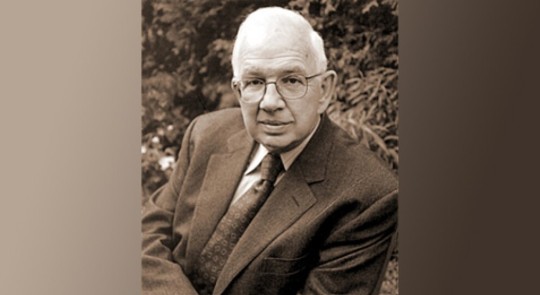
May his memory be for a blessing. And may he rest in peace.
0 notes
Note
If your position is indefensible, you must rely on a rhetorical tactic like misdirection or obfuscation.
There is absolutely no way to justify forcing a 10 year old to give birth. Even if you believe that a lump of fetal tissue carries the same moral weight as a sentient 10 year old girl, you can't justify making a 10 year old give birth for the sake of the tissue, any more than you could justify forcing her to donate a kidney. I think OP knows this, so they're trying to make the conversation about anything besides forcing a 10 year old to give birth. They'll squirm and dissemble and point fingers to avoid saying the truth: They want to force a 10 year old to give birth.
I think that's what's happening here. I think we should all expect to see this tactic a lot in the coming years.
Imagine being so mentally deranged that you think a ten year old should be forced to carry a baby, when her body most likely wouldn’t even be capable of handling the pregnancy. A child doesn’t deserve to be forced to have a child. Thankfully, there are doctors with humanity who will give her an abortion instead of making a young girl go through such immense trauma
She shouldn’t be pregnant. She shouldn’t have been raped.
But now there’s another vulnerable human being. Who is going to be/already has been killed in an attempt to make someone else feel better.
Question: have they caught her rapist?
Y’all keep wanting to talk to me about her baby being killed. Nobody seems to want to talk about what is being done to find, prosecute, and severely punish her rapist.
In the articles I’ve read about this case, I’ve yet to see a single mention of any success or progress in identifying and prosecuting him. Because it’s all about the abortion - not about actual justice or preventing future situations like this by putting the rapist behind bars before he can hurt anyone else.
230 notes
·
View notes
Text
Random Thoughts On Led Zep

"Obviously, it can get to the point where it gets past being a compliment and it can be rather annoying. When you've got things like Kingdom Come actually ripping riffs right off, that's a different thing altogether."
-Jimmy Page
My reaction after the jump.
***

youtube

youtube
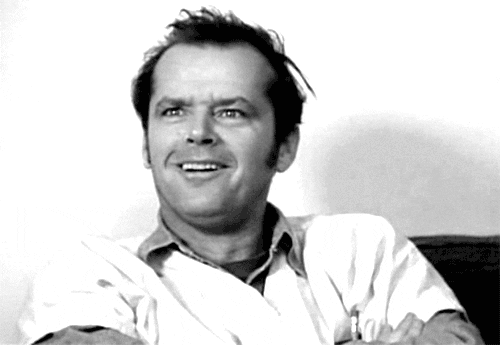
youtube

youtube

***
“[A]s far as my end of it goes, I always tried to bring something fresh to anything that I used. I always made sure to come up with some variation. In fact, I think in most cases, you would never know what the original source could be. Maybe not in every case– but in most cases. So most of the comparisons rest on the lyrics. And Robert was supposed to change the lyrics, and he didn’t always do that– which is what brought on most of the grief. They couldn’t get us on the guitar parts of the music, but they nailed us on the lyrics.”
-Jimmy Page, from a 1993 case brought on by the band Spirit for ripping off their song “Taurus” for Led Zep’s “Stairway to Heaven.” Screenshots below are from that first video embedded above. It’s pretty clearly the music that got Led Zep into the most legal trouble, and it’s pretty hard to suggest fresh variations on a blatant ripoff, while alternatively saying it was lyrics that got y’all in trouble, when in this case there weren’t any lyrics.
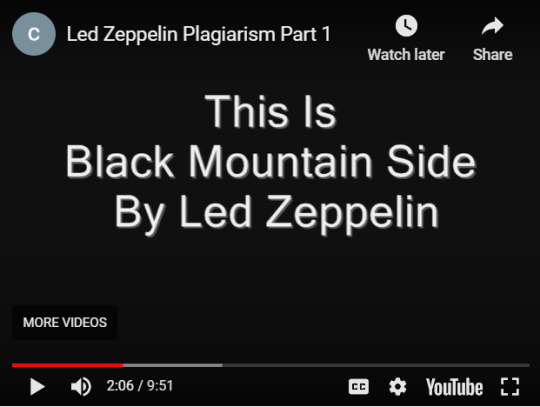



From the same 1993 court filing...
“Page’s attempt to shift blame from himself is not quite fair to Plant as Page repeatedly took entire musical compositions without attribution, in addition to Plant lifting the lyrics and melodies in tandem. This includes Zeppelin’s Dazed and Confused which Page took note for note from Jake Holmes’s Dazed and Confused; Zeppelin’s Whole Lotta Love which was taken from You Need Love by The Small Faces who were covering Willie Dixon (but giving proper credit); and Zeppelin’s Babe I’m Gonna Leave You of which a nearly identical song by the same name was written by Anne Bredon and sang by Joan Baez (again with proper credit given).
There is no way any rational reasonable person listens to these songs and can conclude anything but that they were lifted, as Page and Plant admitted. Yet, Page, Plant, and Jones often dishonestly took full credit for themselves and dissembled at length in their depositions on the subject, refusing to take responsibility.”
Jimmy Page complaining about someone ripping him off is like Martin Shkreli complaining about pharmaceutical prices.
"Obviously, it can get to the point where it gets past being a compliment and it can be rather annoying. When you've got things like Kingdom Come actually ripping riffs right off, that's a different thing altogether."
-Jimmy Page

Led Zep kicks ass no matter who they stole from. Stealing in music, as I’ve discussed before, is not a bad thing in the slightest, as long as full credit is given. Do you begrudge Jimi Hendrix for covering “All Along the Watchtower” or “Hey Joe” or “Day Tripper?” FUCK NO. Those are totally original takes on other people’s songs that he gave full credit to.
Do you have any idea how music has been stolen over the years? I don’t have the resource able to be cited, but one of those stats that has always stuck with me from my musical history classes is that the entirety of pop music can be traced back to the same 35-40 melodic motifs that were first written down in the 1600′s.
“Stairway to Heaven?” That blatant ripoff of Spirit? It’s not that much of a ripoff when you consider that courts have ruled that the particular melody and harmonic progression is technically public domain, since it was first used in 17th century parlor music.
youtube
This might not sound like landmark shit, but it absolutely is. Look at the stat I referenced above...
...the entirety of pop music can be traced back to the same 35-40 melodic motifs that were first written down in the 1600′s.
If we’re able to circumstantially trace music back to an origin point centuries ago, music that is now public domain, to the point where it’s legally upheld, these types of lawsuits might never happen again in regards to the actual music. Lyrical content is another story entirely, but in terms of the nuts and bolts of the music itself...pop musicians are going to have a difficult time proving the originality of their music, if ripped off by others, for no other reason than everyone’s ripping off the same shit that’s been ripped off forever.
Jazz musicians laugh at this, because it’s almost impossible to plagiarize a music that’s improvised, and living and breathing to the point where standards can change their being on a night to night basis. Awhile ago I posted five versions of “All the Things You Are” by Keith Jarrett, and each one was drastically different from the next, even tho the melody and chords were identical. And, most importantly, in jazz...due to the canon being based tremendously on “standards,” i.e. songs composed by others as vehicles to improvise over...songwriting credit is always given to the proper source*.
*It helps that jazz is so unpopular that there’s no monetary incentive anymore to go to court over songwriting royalties lol
Rachmaninoff composed a piece that was a direct ripoff of Paganini’s main themes, but again, not an issue because it was titled “Ode to Paganini,” even if everyone recognizes it as a definitive Rachmaninoff piece. I’m working on my vocals with the bandleader in my new band, and we’re doing Beatles harmonies (kindergarten music is a good place to start for a kindergarten singer like myself)...and they’re almost identical to 4-part Bach choral pieces in design and execution.
*Classical music is so beholden to the concept of protecting intellectual property, it hasn’t evolved for a century because you’re going to see BEETHOVEN or WAGNER or MOZART as much as you’re going to see whatever soloist or orchestra, despite its canon being largely public domain.
The difference is, Led Zep clearly passed off plagiarism as their own work. It wasn’t the theft of others’ music...it was the theft of songwriting credit...and ultimately, the original musicians’ income. You cannot make the argument that if Joan Baez or Bert Jansch were given legitimate songwriting/arranging credits, they’d have had quite a bit more in royalties coming from a band the gigantic size of Led Zep.
No, the problem here is the theft COMPOUNDED by the denial of it when faced with overwhelming evidence. That’s why Led Zep is a problem while Jimi is not. They give proper credit, and all those things Page said about “bringing something fresh” or “coming up with variations,” ring true. Unfortunately, that’s not the case here.
Why do I hate James Horner for his ripoff of Shostakovich in his Troy soundtrack, but don’t have any issue with John Williams ripping off Dvorak’s “New World Symphony” for Jaws? Because of all those notes that follow...Troy was nothing more than lazy musical plagiarism for a lazily executed movie, Jaws used Dvorak’s theme for inspiration that perfectly fit the film and was a legitimate fresh variation. Troy just ripped off Shostakovich, put it over Brad Pitt doing one of the worst accents ever captured on film, and called it a day.

Theft in music is not a matter of intent, and it’s not an indictment on an artist’s creativity to do a variation on another’s work. It’s not even an indictment on a musician’s execution of another’s work. Lets use the seven deadly sins as a framework for nailing down the issue...
Lust - Lusting after another’s creativity? Success? Maybe...but truthfully, I feel like LZ ripped those musicians off out of admiration and loving their music. They wouldn’t play music they think sounds like shit, it’s not like this was commercially successful stuff here.
Gluttony - I struggle to find anything gluttonous with the songs they covered...Rachmaninoff’s Ode to Paganini? THAT is musically gluttonous. That dude packed that piece to the gills with variations.
Sloth - Nope...it’s more difficult to rip someone off that specifically than it is to play your own music that comes out of your brain organically. Stealing music in this fashion is not lazy.
Wrath - I find it hard to believe that Led Zeppelin would harbor any animosity towards any of these artists. Why would you want to waste your time by playing music you hate?
Envy - Don’t see it. Why would LZ be jealous of artists with lesser commercial success? If anything, the envy is on the other side (even if those artists won’t admit it, trust me, they’re jealous)...Led Zep made those songs exponentially more commercially successful, and didn’t share their spoils with the original artists, which brings us to...
Greed - Bingo.
The sole reason this type of behavior is unsavory comes entirely down to green. Green was a typo, but I’m going to keep it because it hits on the issue...if Led Zep had simply given some credit to the original artists, claimed arranging credits, this would be a complete non issue. If anything, those artists suing the band, would likely be thanking them for bringing a new perspective, audience and increased awareness to their own stuff.
But this reeks of a money grab. There’s no other reason to exclude the original artists for anything other than money coming in via songwriting credits. Over decades and decades, for a band like Led Zeppelin, we’re talking tens of millions of dollars here. Tens of millions of dollars that would likely be only somewhat lesser if they gave credit to the musicians they pilfered from.
To deny, obfuscate, and stubbornly contest damning evidence is merely digging a deeper hole. We all know they stole, and we don’t care because the music was so awesome. And even when they reveal themselves to be Grade A dicks, we still don’t care. It would have been just so much easier and better for everyone to have done this the proper way legally...the music is what it is.
What Jimmy Page brought to the table was JIMMY PAGE. His style and aesthetic is impossible to truly mimic, and when he brought that creativity and verve to his music, it was legitimately elevated. By giving credit, he removes this stain of plagiarism and denial, and elevates himself as a musician even more. But instead of choosing to be Robin Hood for lesser known musicians, he decided to be Mr. Burns.
And that’s the problem with all this. Spirit was ripped off, but Spirit’s version aint anywhere near as awesome as “Stairway.” By behaving the way they have in the face of fairly overwhelming, damning evidence, they’ve lessened their art when the high road would have been a far more rewarding route to take.
Think about it for a second...think about all the money Led Zep has likely burnt on legal fees and the damage to their reputation...wouldn’t it have been easier from the beginning just to throw the original artists a bone? Do you think they probably netted out the extra cash they earned by fighting all this in court over the decades?
No idea, but it’s an interesting way to think about it. It’s not ripping off anything if you give the original person credit...it’s an homage at that point. Led Zeppelin just chose a different approach.
0 notes
Text
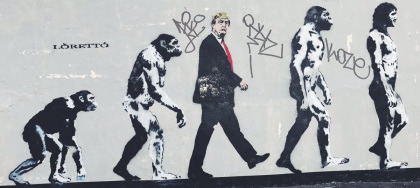
Its been a long while since Isaac Watts (1674-1748) wrote Against Lying; a poetic comment on the slippery slope of lying as one lie follows another, then another, until the number of porkies told in a lifetime probably stretches all the way to Pluto and back.
We learn the art of lying at a very early age from observing and listening to parents and relatives, who themselves picked it up from their own relatives and parents, which then transfers to the larger combat zone of school, and onward into the armageddon of adulthood where we are surrounded by lies, not just the tiny ones childhood taught us, but humongous whoppers flung blithely at us by employers, capitalism and of course, politicians, without pausing for breath or blinking an eye in shame.
No one expects a politician to tell us the truth, but we still vote for them, so who is to blame here for serial lying becoming the gold standard for politics and the capitalist economy?
I just witnessed an interview with the father of Boris Johnson the UK prime minister; now Boris is a serial liar of a certain distinction, he has progressed to way beyond the tipping point of retaining a sliver of recognition that he might not be telling the whole truth, to one where he cannot help his tongue gallop away with an entire regiment of lies in the face of questions. He looks genuinely shocked that anyone could entertain the thought that he was an habitual liar, but this goes for all his colleagues in government; every one of them is a seasoned and consummate liar and fabricator of the truth.
Boris Johnson`s father was told people were comparing his son to Pinocchio, to which he replied that he seriously doubted “the people” could spell Pinocchio, let alone know who, or what Pinocchio was.
This was a blatant show of the elite`s contempt for the general level of intellectual nous of the public; the only answer to it is to vote in a government that will spend whatever it takes on education, to make sure there is an intellectually high calibre electorate to understand exactly what politicians are saying to them.
Unfortunately, I have yet to experience a government that has even begun to fund the education system to sufficiently high levels, to guarantee everyone not only knows who Pinocchio is, but why his name is equated with Boris Johnson. This is because the political and social elites fear an educated electorate, one which fully understands what is being said to them, and then acting accordingly.
I have never experienced such a monumentally high level of what is colloquially called disinformation in global politics. We see fascist demagogues in charge all over the planet, who have lied, cheated, and defamed their rivals to get to the top table, and once there, they rig the system to ensure its well nigh impossible, short of a military coup, to dislodge them. All of this is done with the connivance of a large enough slice of their electorates to ensure success; and what do so many of these countries have in common? A cultural environment which does not encourage and adulate high academic success for the masses: this environment is sustained by the elite of each nation by all means at their disposal, to keep the status quo as it is in their favour, because they know education is their biggest enemy.
The system is ultimately rigged against high education for the many by the elite few even in countries like the United States where the underfunded public school system is a battleground more reminiscent of Baghdad than the supposedly richest country on the planet. If America is so wealthy, one wonders who and where that money is being syphoned off to, certainly not for providing the finest education money can buy for the vast majority of the people.
So, it is rather easy to peddle lies as truth, and confidently expect the electorate to swallow the bait; those that are savvy enough to stand back and intellectually evaluate the truth from the lie, are not enough to hinder the fabricators of fake news and lies from continually hitting a homerun every time they open their mouths, or write their articles of untruth.
All this basically means that the human race will never evolve upward, but it can be argued, it has already clawed up as far as its going to get, and the only direction is down. The Descent of Man has enabled fake news, lies, dissembling, obfuscation and deception to reach new heights, as the human animal starts its decline back to the cave. Only, the fire has been replaced by people peering into their cell phones on fake news sites, believing it all as total gospel, and then knuckle dragging and grunting their way to a poll booth, scrawling a cross somewhere near the right spot, then shuffling their way back to the family cave for another shock of reality television, slouched on the nearest comfy boulder.
Isaac Watts didn`t know what he was missing out on.
Power To The People…Or, those who can at least think for themselves.


“The victor will never be asked if he told the truth.”
~~ Adolf Hitler ~~
KEEP OFF OUR WORMS Its been a long while since Isaac Watts (1674-1748) wrote Against Lying; a poetic comment on the slippery slope of lying as one lie follows another, then another, until the number of porkies told in a lifetime probably stretches all the way to Pluto and back.
0 notes
Text
The Department of Justice targets affirmative action
UNDER Jeff Sessions, the attorney-general, Donald Trump’s Department of Justice (DoJ) has abandoned voting-rights litigation, tried to punish sanctuary cities, cracked down on undocumented immigrants, revoked sentencing reforms and argued that civil-rights laws do not protect gays and lesbians from employment discrimination. Now the DoJ is entering the fray on affirmative action. It is recruiting lawyers to investigate a complaint that Harvard University’s pursuit of campus diversity comes at the expense of Asian-Americans.
After whites, who constitute about half of Harvard’s student body, Asians are the largest demographic group, accounting for 22% of the class arriving on campus later this month. But a lawsuit filed in 2014 by Edward Blum—architect of six race-tinged Supreme Court cases—says their share should be higher. He claims that Harvard’s “holistic” admissions policy disguises “the fact that it holds Asian-Americans to a far higher standard than other students and essentially forces them to compete against each other for admission”. Harvard’s admissions policy is “a figleaf”, he says, “to hide, dissemble and obfuscate racial balancing and quotas.”
In May 2015, 64 Asian-American organisations filed a complaint to this effect with the DoJ. The 50-page document argued that Asian applicants to Harvard “have 67% lower odds of admission than white applicants with comparable test scores” and, on the SAT, need 140 more points than whites, 270 more than Hispanics and 450 more than blacks to have the same chance of getting in. The groups cited Harvard’s “remarkable” stability in acceptance rates for Asians and juxtaposed it with the group’s steadily rising share of Harvard’s applicant pool. They claim this mismatch, along with flat acceptance lines for other demographic groups, suggests that Harvard seeks “proportional representation of the various racial and ethnic groups present in Harvard’s student body”.
On August 2nd Sarah Isgur Flores, a DoJ spokesperson, said that the Obama administration had left this complaint against Harvard “unresolved” and that the civil-rights division of the office was seeking volunteers to reopen it. Ms Flores also corrected what she called “inaccurate” press reports of an internal DoJ memo that the department was about to launch an investigation of “university admissions in general”. Excerpts from the memo published by the New York Times a day earlier had suggested that the DoJ would look into and litigate “intentional race-based discrimination in college and university admissions”—a rather open-ended mission.
If the DoJ is using the Harvard suit as a first step towards a wider-ranging investigation, it will be constrained, for now, by the Supreme Court’s narrow endorsement of admissions policies benefiting blacks and Hispanics. Since 1978, the court has said that while quotas are unconstitutional, universities seeking “the educational benefits that flow from an ethnically diverse student body” may consider race.
Last year Justice Anthony Kennedy wrote the majority opinion in a case rebuffing a woman who complained that being white cost her admission to Texas’s flagship public university, where race is a modest factor in admitting a quarter of the student body. Universities are “laboratories for experimentation”, Justice Kennedy wrote. They are owed “considerable deference” in defining “intangible characteristics, like student body diversity.” But, he added, they must strive “to reconcile the pursuit of diversity with the constitutional promise of equal treatment and dignity.”
The 81-year-old Justice Kennedy, whose vote upheld race-aware admissions last year, told prospective applicants for clerkships that he is considering retirement in 2018. If he hangs up his robe, his replacement will almost certainly share the four-justice conservative bloc’s distaste for affirmative action. That means the DoJ’s campaign against racial preferences may face a friendly majority by the time its lawsuits reach the Supreme Court.
This article appeared in the United States section of the print edition under the headline "POTUS v Harvard"
http://ift.tt/2wpoDe1
0 notes
Text
2020 Dem Sues Google for Allegedly Censoring Her Campaign: ‘This Is a Real Threat to Our Freedom’
Congresswoman Tulsi Gabbard (D-Hawaii) is suing Google for allegedly censoring her campaign following the first Democratic debates.
As IJR Blue reported at the time, Gabbard was one of the most-searched candidates following the first round of Democratic primary debates. The congresswoman was one of the lesser-known candidates on the stage but had several breakthrough moments discussing her military service and her desire to get troops out of the Middle East.
Because voters wanted to know more about Gabbard, they took to Google to find out information on the candidate, and to potentially donate to her cause.
Gabbard’s campaign team had hoped this would happen. In preparation for the debate, they sponsored her campaign website to be the first page listed in the results when someone searched her name.
However, that never happened. The candidate’s team was notified a few minutes into the debate that their advertisement had been pulled. In a statement on her website, Gabbard wrote:
“For hours, Tulsi’s campaign advertising account remained offline while Americans everywhere were searching for information about her. During this time, Google obfuscated and dissembled with a series of inconsistent and incoherent reasons for its actions. In the end, Google never explained to us why Tulsi’s account was suspended.”
Because Gabbard potentially lost out on thousands of campaign donations, she is suing Google for $50 million. During an interview about the lawsuit with the New York Times, Gabbard said:
“Google’s discriminatory actions against my campaign are reflective of how dangerous their complete dominance over internet search is, and how the increasing dominance of big tech companies over our public discourse threatens our core American values. This is a threat to free speech, fair elections and to our democracy, and I intend to fight back on behalf of all Americans.”
She elaborated on her lawsuit further in an interview with Fox News’ Tucker Carlson, who is also a vocal critic of big tech censorship. Gabbard explained that she felt she had to sue Google because if they could do it to her, they could do it to any American.
Watch Gabbard’s comments:
var _bp = _bp||[]; _bp.push({ "div": "Brid_1202466_1", "obj": {"id":"12036","stats":{"wp":1},"video":"442036","width":"662","height":"372"}});
“This is really about the unchecked power that these big tech monopolies have over our public discourse and how this is a real threat to our freedom of speech and to our fair elections. So, this really isn’t about me. It’s about taking action on behalf of the American people because we’ve got to understand here that if Google can do this to me — as a sitting member of Congress, running for the highest office in the land — then that means they can do this to any candidate running for any office anywhere in this country, and frankly to any person in this country. That’s why it’s so important. That whether you are progressive or conservative, whether you consider yourself on the left or the right, we all have to stand united to protect our freedom of speech. Because, look, today, it’s me. Tomorrow, it could be you or someone else.”
Gabbard has gotten some support from Republicans in the capitol, including Congressman Dan Crenshaw (R-Texas).
Conservatives aren’t the only target of biased big tech. It is also Democrats who aren’t the party darlings.
This threat is now bipartisan. https://t.co/qcwNOPLL0i
— Dan Crenshaw (@DanCrenshawTX) July 26, 2019
While Gabbard has some support from across the aisle, her fellow Democrats have been rather silent on the issue. That could change during the upcoming presidential debates, however.
Gabbard — who will compete on the debate stage on Wednesday night — plans to bring it up before the other candidates.
from IJR https://ift.tt/2GPexen via IFTTT
0 notes
Text
Dear Racism I Am Not My Grandparents Sincerely These Hands Hoodie
Do you love it? https://kuteeboutique.com/shop/dear-racism-i-am-not-my-grandparents-sincerely-these-hands-hoodie/
Dear Racism I Am Not My Grandparents Sincerely These Hands Hoodie
Putin wanted to cast aspersions on both political parties and he is playing the U.S. Dear Racism I Am Not My Grandparents Sincerely These Hands Hoodie. politicians beautifully and really exposing just how corrupt both parties are and what they will do to get in power and stay there. The 2016 had nothing to do with who was best for the job, but who we thought was less corrupt and actually deliver on promises. We just get more and more of the same. Politicians looking out for their interests only. “It was miraculous. It was almost no trick at all, he saw, to turn vice into virtue and slander into truth, impotence into abstinence, arrogance into humility, plunder into philanthropy, thievery into honor, blasphemy into wisdom, brutality into patriotism, and sadism into justice.
Dear Racism I Am Not My Grandparents Sincerely These Hands Shirt, Hoodie, Sweater, Ladies T-Shirt
Dear Racism I Am Not My Grandparents Sincerely These Hands Hoodie
Are they for country or party, one would think that every red blooded American would want to get to the bottom of this investigation , Where are your loyalties sirs? Why? Because the GOP has a bad habit of putting party before country? Or is it because the temporary occupant in the Oval is just that: temporary? Why are they afraid of the investigation? Do they believe they will be prosecuted unfairly? Sessions has it made with owning the Prisons & all! Maybe they can start a Political Prison in the Cayman Islands where the money is stashed.
Dear Racism I Am Not My Grandparents Sincerely These Hands Sweat Shirt
This makes a person think that everyone in the GOP knew about what was happening with Russian interference and condoned it because , well, anything to be in power and screw the population. A step up from gerrymandering, but hey, anything is fair with them. Partisans not patriots! If there was no wrong-doing then Trump has nothing to fear but all this dissembling and obfuscation seems suspicious. Leave it to the Republicans to try and cover up the truth.. Really pathetic group of do nothings who are afraid of the truth coming out.. They should be the ones resigning after years of voting against the best interests of the people they represent.
Dear Racism I Am Not My Grandparents Sincerely These Hands Ladies Tee
Dear Racism I Am Not My Grandparents Sincerely These Hands Shirt, V-Neck, Tank-Top, Long Sleeve T-Shirt
Dear Racism I Am Not My Grandparents Sincerely These Hands Ladies V Neck
I thought I read that when they hired Mueller his contract was iron clad. They wrote it so Trump could not fire him or interfere in any way. Is that not true? The people who are being investigated should not be able to terminate the person investigating. Another bunch of corrupt repukes backing dumps treasonous behavior. They obviously don’t want the truth to come out. Maybe they’re involved too. What a dangerous proposition. Should that effort to get Mueller to resign succeed, it means that some people are above the law. It doesn’t matter who the president is or which party is in control, no one should be above the law.
Dear Racism I Am Not My Grandparents Sincerely These Hands Unisex Tank Top
NO! Let him do his job. Interference by a foreign government is a matter of national security. The American people need to know who inside was involved. Will O’Connell allow a floor vote? He won’t allow a vote already introduced to protect Mueller. Ratchet neck has too much power currently. These same people that demand accountability from everyone, with the exceptionof their daddy. These GOP members of Congress are pathetic. Trolls are loving this post. Trump and Russian trolls are back making money trying to divide us. We need answers and Mueller is getting the administration scared. Tick tock. Hurry Mueller.
Dear Racism I Am Not My Grandparents Sincerely These Hands Unisex Longsleeve Tee
Breitbart, Bannon and the Mercers at it again. These three Congressmen are no big brain trust and it is precisely who Breitbart and the Mercers target. A little whisper in their ear is all it took. Someone elsewhere suggested that the GOP/trump camp just set Sessions up to take a fall so they can replace him with an interim AG to fire Mueller. Dear Racism I Am Not My Grandparents Sincerely These Hands Hoodie. I hope that person is wrong. Oh for $?!* sake! These people just need to stop! They do not have Americans’ best interests at heart, just their own! I hope they are voted out of office at the earliest possible moment.
0 notes
Text
* World Travel Tips : United Airlines Is Just One Miscreant In The Age Of Frustration
Travel Tips -
I have believed for a long time now that Donald Trump was elected president partly because of the behavior of companies like United Airlines and its large and growing fraternity of institutions that find the individual customer an inconvenience.
We live in an age where we have to take what we are handed by the institutions that are supposed to serve us. We live in an age of frustration. The daily frustration of life has bubbled up in politics, on social media and even in graffiti.
These are some of the institutions of our torment:
The banks that leave you half an hour on the telephone, pleading to speak to someone — a human being — who might, just might, help you.
The telephone companies that want you to crawl around the floor, at the behest of directions from a call center in Bangladesh, doing your own repairs.
The internet providers that will not believe that their systems could need fixing and will only send a technician when all logic and patience is exhausted and someone in the Philippines is satisfied that you do know what you are saying and that English is, in fact, your first language.
The medical insurance company that has a computer converse with you about a problem with your account.
Nowadays services are provided for high, unexpected fees. Vendors, such as hotels and car rental companies, dissemble about costs. They use marketing to bait and obfuscate — Amtrak excels at this. The fine print is there for the purpose of trapping the hapless customer. The price of everything is calculated as to what can be extracted from you at the time of purchase.
Of course, Trump was not the answer. Electing him may have been electing a fox to protect the chickens. But it was a cry for help from many voters.
The adage that the customer is always right is inverted: The customer is always wrong and should be fleeced and not heard.
Big is not beautiful when it comes to services. It means that you, the customer, are nothing, an impediment, a nuisance, an awkwardness, a de minimis statistic, a grain of sand on the beach of corporate wealth.
Most especially, you are to be kept at arm’s length, at the end of a computerized telephone system, to be contacted only to upsell or to threaten, if you are a day late with your payment.
When it comes to large institutions — primarily corporations but not-for-profits, like the AARP and the unions, are as guilty — the adage that the customer is always right is inverted: The customer is always wrong and should be fleeced and not heard.
Moreover the customer is a nuisance, an impediment to corporate well-being, and should be kept as far from corporate comfort as possible, preferably by employing computers and automated telephone systems. If human contact is necessary, that sort of customer impudence can be handled by call centers in faraway places.
Limited English is an asset; bloody-mindedness, a virtue. Customer insubordination must be checked firmly and early.
And the contracts. Oh, the contracts! The poor victim who was manhandled off a flight he had paid for had a contract with United, allowing the airline to overbook flights (a kind of fraud, selling a seat they do not have). He did not know he was party to such a contract.
We all have these unilateral contracts — with banks, credit card companies, internet providers, telephone companies — stuffed down our throats all the time. In fact, any time you deal with Big Inc. You pay, they dictate.
I believe that is why some people voted for Trump: They were “mad as hell and … not going to take this anymore.” Looks as though they were conned again.
-- This feed and its contents are the property of The Huffington Post, and use is subject to our terms. It may be used for personal consumption, but may not be distributed on a website.
World Travel Tips : Find cheap flights, hotels and car rentals. Plan your trip with travel guides, personalized recommendations, articles, deals and more. When you travel, you want your bags to travel with you. Follow these tips from travel professionals on how not to lose your luggage.
0 notes